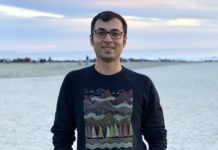Bridging Critical and Conceptual Psychiatry: An Interview with Awais Aftab
MIA’s Justin Karter interviews psychiatrist Awais Aftab about how “conceptual competence” uses philosophy to transform psychiatry.
Exercise for Youth Mental Health in the Lockdown: Interview with Psychologist Scott Greenspan
School Psychologist Scott Greenspan discusses how to promote exercise and mental wellbeing for adolescents stuck indoors during the pandemic.
Bringing Human Rights to Mental Health Care: An Interview with UN Envoy Dainius Pūras
MIA's Ana Florence interviews United Nations Special Rapporteur Dainius Pūras about his own journey as a psychiatrist and the future of rights-based approaches to mental health.
“Free Our People!” Ex-Psychiatric Patients Demand COVID-19 Accountability in State-Run Facilities
Residents and workers are dying from COVID-19 exposure in Massachusetts state hospitals. One group of ex-psychiatric patients and allies has had enough.
When Psychology Speaks for You, Without You: Sunil Bhatia on Decolonizing Psychology
MIA’s Ayurdhi Dhar interviews Sunil Bhatia about decolonizing psychology, confronting the field’s racist past, colonial foundations, and neoliberal present.
Bedlam: Public Media, Power, and the Fight for Narrative Justice
A new mental health documentary awakens longstanding tensions around voice, representation, and the power to define problems and solutions.
Do Antipsychotics Protect Against Early Death? A Review of the Evidence
Psychiatry is now claiming that research has shown that antipsychotics reduce mortality among the seriously mentally ill. A critical review of the literature reveals that this claim is best described as the the field's latest "delusion" about the merits of these drugs.
Muzzled by Psychiatry in a Time of Crisis
The American Psychiatric Association and its former president, Jeffrey Lieberman, have used the Goldwater Rule to try to silence Yale psychiatrist Bandy Lee and colleagues who warned, in a collection of essays, about why President Trump is "dangerous." Why would a guild choose to do this?
Life Inside America’s Psychiatric Facilities During the Pandemic: Eyewitness Accounts
Insiders paint a picture of chaos and fear in public and private psychiatric hospitals across the country. "Now that she has been discharged, Sevigny is getting the truth out, just as the nurse asked her to do. She also plans to continue to organizing in her state, with and on behalf of those who continue to be subjected to dangerous conditions in the name of care."
America’s Psychiatric Facilities Are ‘Incubators’ for COVID-19
As the novel coronavirus continues to wreak havoc around the globe, whistleblowers at American psychiatric facilities paint a picture of mismanaged COVID-19 responses and lax safety protocols, putting patients, workers, and the surrounding communities in harm’s way. Some even allege coverups of deaths.
Where Western Medicine Meets Indigenous Healing: An Interview with Anthropologist Ian Puppe
MIA's Micah Ingle interviews the anthropologist Ian Puppe on how the imposition of psychiatric treatments can lead to harmful iatrogenic effects with Indigenous peoples.
Narrating Asylum History Through an Anti-Racist Lens: An Interview with Author Mab Segrest
Mab segrest is Professor Emeritus of Gender and Women's Studies at Connecticut College and the author of Administrations of Lunacy: Racism and the Haunting...
Inside a Pandemic: Media Struggle to Define What’s Normal
Press coverage of the effect of COVID-19 on mental health sends a confusing message: Becoming anxious about it is normal if you are mentally healthy but a sign of illness if you’re not. Although apparently some "normal" people might experience so much anxiety that they, too, could now be seen as mentally ill.
“Not Fragile”: Survivor-Led Mutual Aid Projects Flourish in a Time of Crisis
During the current pandemic, the practice of mutual aid—defined broadly as the ways that people join together to meet one another’s needs for survival and relationship—has become mainstream. Yet, often missing from major media coverage of mutual aid is any acknowledgment of its roots in movements led by marginalized people, including Black and Brown people, disabled people, mad people, and psychiatric survivors.
Mutual Support in an Age of Social Distancing
Connection, whether one-on-one or in groups, is at the heart of peer support. In a time when social distancing and stay-at-home orders proliferate, the Western Massachusetts Recovery Learning Community/Wildflower Alliance (WMRLC) is finding creative ways to adapt to rapidly changing circumstances dictated by the novel coronavirus.
Mental Health Apps: AI Surveillance Enters Our World
While the developers are promoting the apps as a public health initiative, they are effectively an AI that would be snooping on you at all times—ostensibly coming to know you better than you know yourself. And ultimately doing so for commercial purposes that will expand the psychiatric enterprise.
Psychology is Not What You Think: An Interview with Critical Psychologist Ian Parker
MIA’s Ayurdhi Dhar interviews Ian Parker about critical psychology, discourse and political action, and whether psychology has anything left to offer.
An Open Letter to VA Secretary Robert Wilkie: A Plan for Deprescribing Veteran Suicides
Through my research and experiences, I've found that what the Veterans Administration has been doing to fight the veteran suicide epidemic isn't working and appears to be unintentionally exacerbating it. These problems are fixable. But I need your help.
Live and Learn: An Interview with Laysha Ostrow
MIA’s Peter Simons interviews Laysha Ostrow about her mental health research and consulting company, the inclusion of peer specialists in mental health care, and her personal experience with the mental health system.
The Carter Center’s Guide for Mental Health Journalism: Don’t Question, Follow the Script
The Carter Center’s Journalism Resource Guide on Behavioral Health is a manual for docile journalism. There is no encouragement to be skeptical of the powerful in psychiatry. Rather, the guide provides reporters with a template to follow that reifies conventional wisdom, offering a message similar to what the American Psychiatric Association has sounded for years.
“Reimagining Psychiatry:” An Interview with Peter Stastny
Peter Stastny is a New York-based psychiatrist, documentary filmmaker, and a co-founder of the International Network toward Alternatives and Recovery (INTAR). He has been...
Moving Mental Health Work Away from Diagnosis: Sarah Kamens and Peter Kinderman on New...
MIA's Justin Karter interviews two leaders of the Task Force on Diagnostic Alternatives, a group of mental health professionals who have issued an open letter demanding a new look at psychiatric diagnosis.
Capitol Hill Briefings Debunk Myth Linking Gun Violence to Mental Illness
The public is regularly led to believe that mass shootings are committed by people diagnosed with a serious mental illness. Researchers explain that is just plain wrong, and prevents our society addressing the most common causal factors.
Bernie Sanders’ ‘Revolutionary’ Disability Plan Opposes Expanding Involuntary Treatment
Candidate Bernie Sanders' 'disability rights as civil rights' plan is distinctive in its explicit inclusion of people with psychiatric disabilities and diagnoses, an orientation that runs counter to prevailing policy discourse in the U.S.
Psychology and Poverty: An Interview with APA President Rosie Phillips Davis
MIA’s Gavin Crowell-Williamson interviews psychologist Rosie Phillips Davis about her presidential initiative to address deep poverty.

































